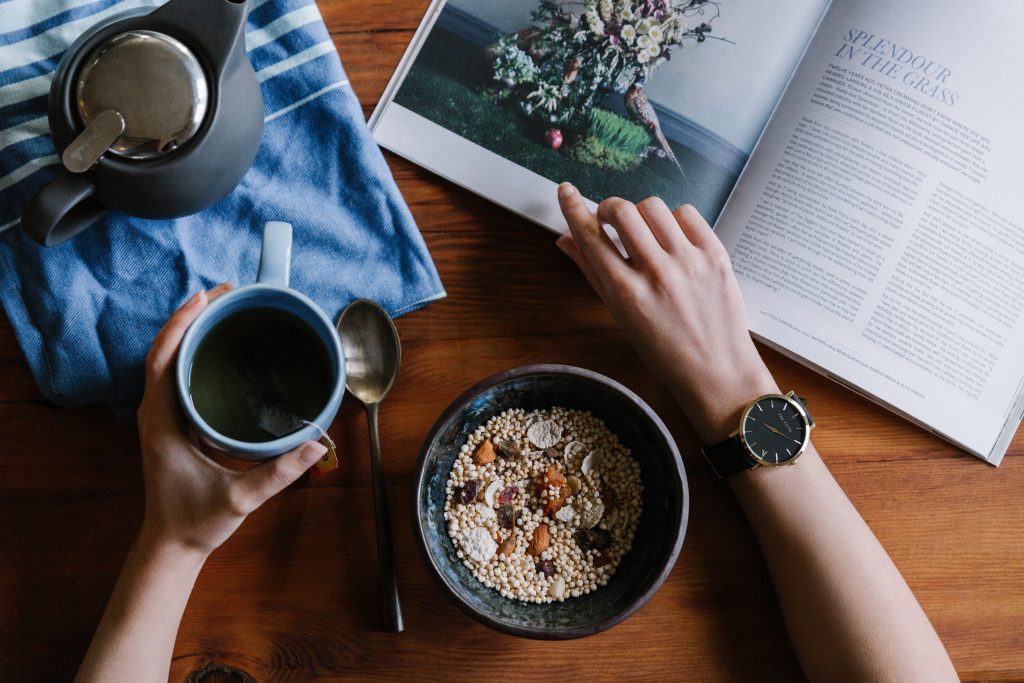The process of recovery from addiction has taught us all about the phases of change and discarding old, destructive habits. But what’s involved in developing new, healthy ones?
What you repeatedly do (what you spend time thinking about and doing each day)

ultimately forms the person you are, the things you believe, and the personality that you portray.
But what if you want to improve? What if you want to form new habits? How would you go about it?
Developing new habits is not about willpower. Good habits occur when we set ourselves up for success. Here’s a guide to show you how.
We’re all creatures of habit. We tend to wake up at the same time every day, brush our teeth, have our morning tea or coffee and travel to work.
We’re comfortable following the same patterns every day. So why is it so difficult to form new healthy habits?
Behavioural scientists who study habit formation say that many of us don’t try to create healthy habits the right way.
For instance, we make courageous resolutions to start exercising or lose weight without taking the steps required to set ourselves up for success.
Here are some tips, backed by research, for forming new healthy habits:
Stack your habits.
Experts say that the best way to form a new habit is to link it to an existing routine. Look for patterns in your daily life and consider using current habits to create new, positive ones.
For example, many of us tend to flop on the couch at the end of the day to watch TV. Now, that might be a good time to do a single daily Yoga pose.
Start small.

B.J. Fogg, a researcher at Stanford University and author of “Tiny Habits,” explains that significant behaviour changes require a high level of motivation that’s difficult to sustain.
He suggests starting with tiny habits so that the new pattern is easy to follow as in the beginning. For instance, taking a daily short walk could be the beginning of an exercise habit.
Or, putting an apple in your lunch bag every day could lead to better eating habits.
Dr Fogg describes how he wanted to start a daily push-up habit.
He started with just two push-ups a day and, to make the habit stick, tied his push-ups to a daily routine: going to the bathroom.
He began by, after a bathroom trip, hitting the floor and doing two push-ups. Now he has a habit of up to 80 push-ups a day.
Do it every day.
British researchers published a study in the European Journal of Social Psychology, wherein they observed how people form habits in the real world.
They asked participants to choose a simple habit they wanted to start, like drinking water with their meals or taking a walk after dinner.
The study revealed that the amount of time it took to become a habit – an automatic task – ranged from 18 to 254 days. The median time was 66 days!
That means that habits take a long time to become part of our daily routine, but they form faster when we do them more often.
So, start with something realistic that is really easy to do. You are more likely to stick with an exercise habit if you do some small exercise — a few Yoga poses, a short brisk walk — every day, rather than trying to get to the gym four days a week for vigorous workouts.
Once the daily exercise becomes a habit, you can explore and graduate to new, more intense exercise forms.

Make it easy.
Habit researchers tell us that we are more likely to form new habits when we clear away the obstacles that stand in our way.
Packing your gym gear and leaving the bag by the door is one example of this.
Choosing an exercise that doesn’t require you to go out of your house — like sit-ups or jumping jacks — is another practical way to start an exercise habit.
Dr Wood, author of the book, “Good Habits, Bad Habits: The Science of Making Positive Changes That Stick,” calls the constraints that get in the way of good habits “friction.”

In one experiment, researchers changed the elevator doors’ timing, making the workers wait for half a minute instead of the standard 10 seconds.
This delay encouraged the workers to take the stairs, instead of waiting for the elevator doors to open.
“It shows how sensitive we are too small friction in our environment,” said Dr Wood. “Just slowing down the elevator got people to take the stairs, and they stuck with it even after the elevator went back to normal timing.”
Marketers are already experts in reducing friction, forever inducing us to spend more. Amazon has a “one-click” button, and fast-food companies make it easy to order food on their apps.
“We’re just very influenced by how things are organised around us in ways that marketers understand and are exploiting”, she wrote. We need to understand and exploit the process in our own lives similarly.
Reward yourself.
Rewards are an essential part of habit formation. Dog owners know the value of rewarding pets with treats to reinforce habits.
When we brush our teeth, the reward is instant — a minty fresh mouth. However, some rewards — like weight loss or the physical changes from exercise — take longer to be evident.
That’s why it is helpful to build in some immediate rewards to help you form the habit. Listening to audiobooks while jogging, for example, or watching a favourite TV show on the treadmill can help reinforce an exercise habit.
Or plan your exercise time with a friend so that it becomes an added social engagement.
During active addiction, our habits are self-destructive, even harmful to those around us. As they say, we need to learn to play “new games, with new playmates in new playgrounds”. A therapist is can be a powerful ally in helping you form a new way of life that is healthy, joyful and productive.
For expert help in overcoming your old habits and forming new ones, call us on Freephone 0800 140 444 today!



